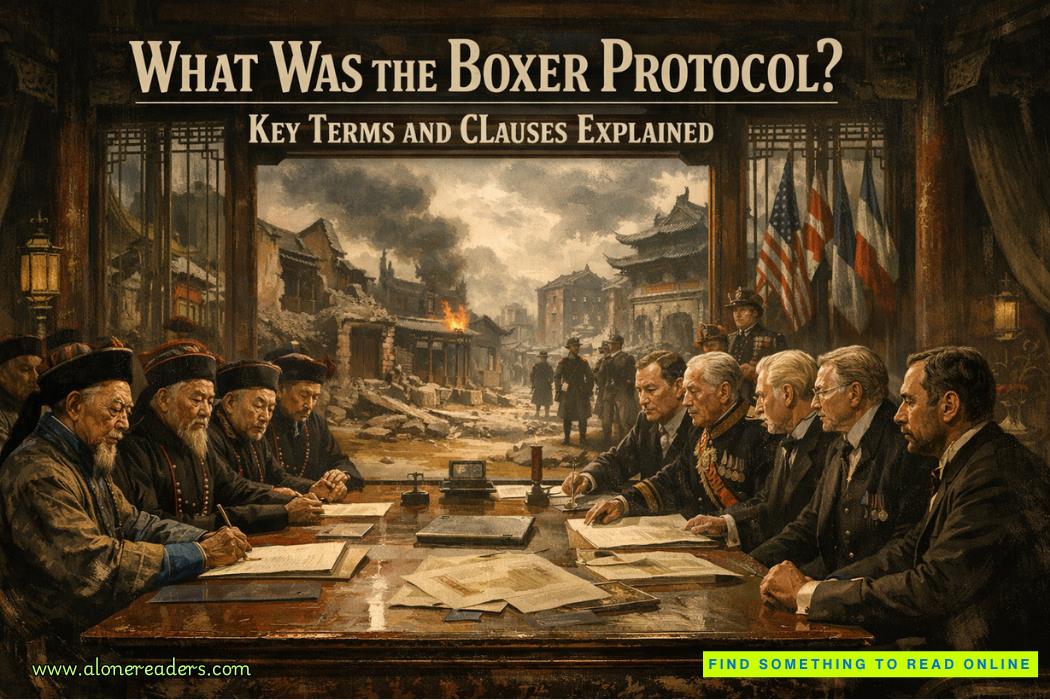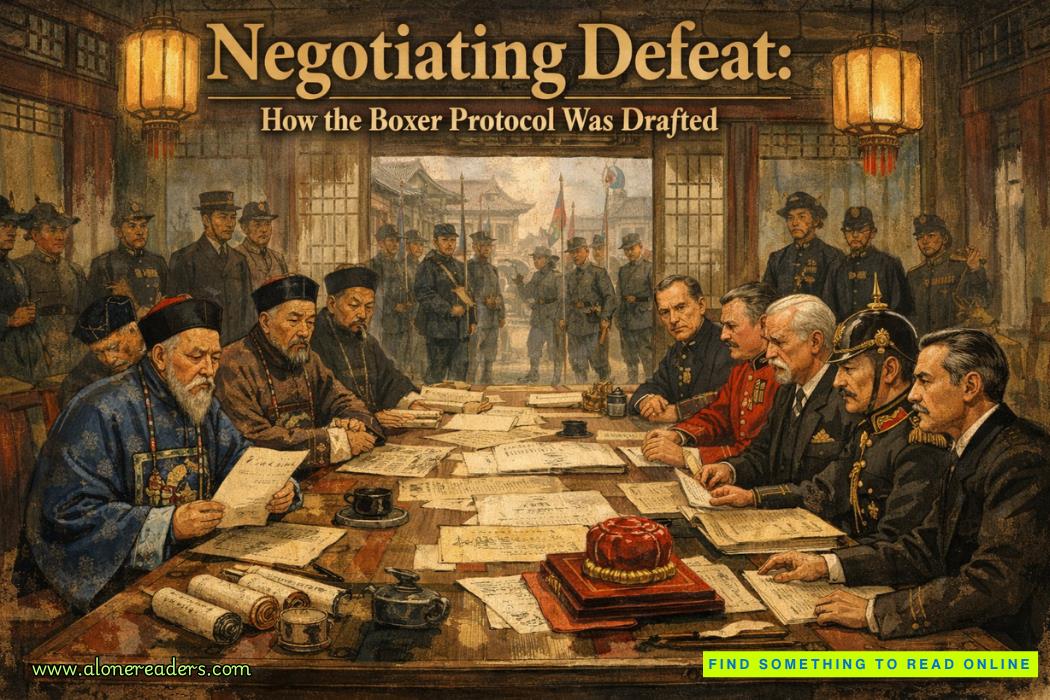Douglas turned to see Mrs. Aintree making her deliberate way toward him. He waved a hand and waited, thinking of battles at sea and wounded men tumbling down the companionway to his overcrowded, overworked sick bay. That was one kind of medicine; this was another. Might as well do all the good he could here, before he found a better place to spend his days.I’ll perfect my bedside manner, where never I had needed such a luxury before, he thought with some amusement.I’ll experiment on the people of Edgar.
He nodded to Mrs. Aintree and decided to start with her. He offered her his arm, which she took with a blush. “You are kindness itself, Mrs. A,” he said. “I doubt Mrs. Tavish has ever worn anything with embroidered flowers.”
She pinked up further, probably amazed that a man would notice, and looked back. “It’s hard there,” she said.
“Not as hard as it was a week ago,” he told her. “Tommy is on the mend, and you have given him something to do. I will do what I can for you, and I think that is how things work on land.”
She chuckled at that. “Nobody has much say at sea, do they?”
“None at all,” he assured her. “Not those patients. Now these—I’ll have to coax some of them to come to me with their troubles.”
“No coaxing from me,” Mrs. Aintree said. She patted his hand for emphasis. “I can pay you, of course.”
“I have a better idea,” he told her, deciding there was no time like right now to see if he possessed even a spoonful of negotiation skill. He stopped, took both of her hands in his, and looked into her eyes. “Mrs. Aintree, would you consider paying me by opening your home to Tommy and his mam?”
She stared at him, open-mouthed. “Surely not.”
He thought she would say that, but he had time on his side. He started them both in motion again. “It was just an idea. You have a large home, and I imagine you enjoy the peace and quiet there.”
“I do,” she said with some emphasis, which set the feathers in her bonnet nodding.
“I was just thinking how convenient it would be to have Tommy there to milk morning and night. With a little advice from you, I suspect that Mrs. Tavish would keep your place tidy, while your arm is in a sling.”
“A sling?”
“Have to hold your hand still and not bump your fingers on anything,” he said. He shrugged. “Perhaps you will figure out how to do all your housework by yourself. Ah! Here we are at your place, Mrs. Aintree.” He gave her a little bow and she took her hand from his arm. “Thank you for all you have done for Mrs. Tavish.”
“It was just a nightgown,” she said. “Well, maybe a few other things.”
He tipped his hat to her. “I do like the good ladies of Edgar. Good afternoon to you now.”
Smiling to himself, he walked across the street toward his own house and surgery. He looked back before he opened the door, secretly pleased to see that Mrs. Aintree still stood there. He would have given a year’s retirement pay to know what she was thinking.
Chapter 15
Douglas Bowden had alwaystaken pride in his medical education: two years at London Hospital, courtesy of one of his captains, followed by a year of ward-walking in Guy’s Hospital, and then surgery under fire at Trafalgar. He hadn’t thought he was a man given to pride, not the son of a cooper from Norfolk. Or maybe he was.
What he learned about medicine the next day equaled every hour, every anguish, every triumph, and every failure. And he learned it from little Flora MacLeod, six years old and small like the other Highland children, bearing a huge burden.
He began the day flat on his back, staring at the novelty of an overhead deck that did not move. There were no bells to summon him, no grabbing of his shoulder by the pharmacist mate with bad news, always bad news. No drummers beating to quarters. He let the day come, and with it came wrens and robins and the warbles of the morning lark. The tide was in, and with it the lapping of water against the bridge supports.
His bedchamber was long and narrow. The bedsteadmentioned by Lady Telford was worth nothing except to be broken up for firewood. At first, he had toyed with the idea of screwing two hooks into opposite walls and just slinging a hammock. When Olive offered to sell him her parents’ bedstead and mattress, he hadn’t argued, mainly because he was acutely aware how little she made from her tearoom. She objected when he overpaid her, but he ignored her.
As it turned out, the bed was a capital idea. He could lie in the middle of it and touch each side of the mattress, which was better than scrunching into a hammock. There was one thing about a bed: there was room in it for someone else too. The idea of a wife had never been more than a luxury, and luxuries were always in short supply in the Royal Navy.
Hands behind his head, he contemplated the novelty of marriage, probably brought on even before the purchase of his bed. The acquisition of a house had opened the door on the idea. It swung wide last night when he was called to the home of the grocer, whose wife was in the middle of a labor going nowhere.
Douglas had no trouble reassuring the skeptical but desperate grocer of his obstetric abilities. He had delivered a moderate number of babies aboard ship, mainly the children of the rare captains whose wives refused to remain on shore or the less-exalted sons (and daughters) of the guns, delivered to drabs sneaked on board and discovered too late to return to shore before a lengthy voyage.
Red-faced and determined, Mrs. Grocer had surrendered without complaint to the embarrassing novelty of a man taking charge. He had the right tools: a small-enough hand and a reassuring manner. In a mere five minutes and two contractions, the grocer’s first child squinted, wailed, and saw the light of dawn.
“Same thing happened two years ago,” the grocer said as he wiped his tears and held his son. “No doctor then.”
Douglas left the three of them an hour later, satisfied and thinking that he could have banged on a drum and somersaulted out of the room and the parents wouldn’t have noticed, so deeply were they looking into each other’s eyes. Little Grocer Junior completed the tableau as he stared at both of them, wondering.
Once he had deep-sixed the idea of a wife, Douglas hadn’t considered children of his own, either, not until this morning. His medical satchel slung over his shoulder, he strolled home and crawled back in bed, content and discontent at the same time, wanting what he did not have. He came to no immediate conclusion, other than that he would postpone all matrimonial enterprise until he was permanently settled somewhere. He did know this—he wanted a wife as kind and cheerful as Olive Grant.
Over breakfast in the tearoom later, Douglas told Olive about Edgar’s newest citizen. He was too circumspect to say anything about his epiphany.















